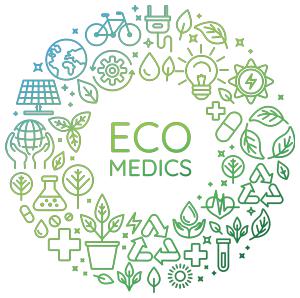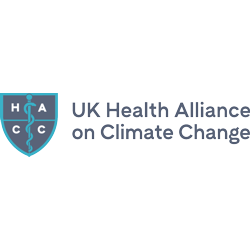To the Agriculture and Horticulture Development Board and the Department of Environment, Food and Rural Affairs,
10th May 2024
We are writing on behalf of NHS healthcare professionals to express our concern about your “Let’s Eat Balanced/This and That” campaign. As doctors dietitians, and other allied healthcare professionals, we have a duty to speak out against inaccurate and misleading public health messaging. This campaign is at odds with established scientific evidence on healthy and sustainable diets 1.
Your health claims are disingenuous. Although meat is a source of protein, zinc, iron and vitamin B12, these nutrients are easily obtained from a well-planned plant-based diet, as recognised by the British Dietetic Association amongst other dietetic and nutrition institutions. Vitamin B12 is made by microorganisms and cows are supplemented with cobalt to support sufficient production by gut bacteria2. Many farm animals are also supplemented directly with vitamin B123. Given that fortification of either animal or human food is required for B12 intake, direct fortification of human food or supplementation would be a more efficient use of resources. Similarly, dairy is a source of calcium, but calcium is a mineral in the soil, which can be obtained from consuming beans, green vegetables, fortified plant milks and yoghurts and calcium-set tofu.
Plant-based diets are not only nutritionally adequate but are associated with improved health outcomes4. Encouraging a higher consumption of fruit, vegetables, whole grains, legumes, nuts and seeds whilst limiting or avoiding animal sourced foods reduces the risk of heart disease5, high blood pressure6, type 2 diabetes7, obesity8 and certain cancers9. Replacing animal protein with plant sources of protein is associated with significant improvement in health outcomes, including reduced risk of premature death10,11. Yet the Let’s Eat Balanced campaign has links to suggestive ‘health benefits’ whilst ignoring the guidance to limit meat intake, particularly red and processed meat.
Nutrition and sustainability are interrelated – we should not tackle either of them in isolation. Thus, your claims regarding sustainability are also misleading. The climate crisis is the greatest ever threat to human health12. Additionally, climate change poses a significant risk to food security and farming communities through extreme weather events. The Intergovernmental Panel On Climate Change (IPCC) makes it clear that “reducing meat consumption… reduces pressure on land and water and thus our vulnerability to climate change” making a specific reference to the UK and that the average diet is not compatible with a sustainable global food system. They approximate a 63% reduction in dietary carbon emissions with a switch from an omnivorous to a plant-based diet13.
The latest UK specific research makes it clear that a diet containing animal products is significantly more harmful to the environment than one that does not, with plant-based diets having approximately 25% of the environmental impact of a diet with a high meat intake14. In the UK, 70% of our total food-related emissions come from red meat and dairy production. Methane emissions from cows alone will prevent us from limiting global warming to safe levels. Excess consumption of red meat and dairy is leading to 42000 deaths in the UK annually15,16.
Animal farming is also associated with the rise of antibiotic resistant infections17, the development of zoonotic diseases with pandemic potential18, and increases in particulate air pollution and ground level ozone19. Animal manure continues to pollute our land and waterways.
As health professionals we recognise the importance of farmers and the key role they play in the production of healthy and nutritious food whilst being stewards of our land. The countryside will always require farmers and they need support from their Governing bodies to adapt their industry in a way that allows for the restoration of nature and acceleration of carbon sequestration, whilst continuing to provide locally produced plant-based foods.
We call on the AHDB to wholeheartedly embrace this difficult, but necessary step, by retracting the campaign to promote increased consumption of meat and dairy using misleading and un-evidenced marketing. We encourage AHDB and DEFRA to engage with healthcare professionals in developing policies and campaigns to support the future of the farming industry that encourages the increased consumption of locally grown fruit, vegetables, beans and pulses, alongside a significant reduction in production and consumption of meat and dairy produce. This would be invaluable to the health of the environment, the UK public and to safeguard all our futures.
We attach an appendix that provides further evidence on our concerns on the specific health messages delivered in your campaign and welcome further discussion.
Yours sincerely
Dr Shireen Kassam Plant-Based Health Professionals UK
Dr Matthew Lee Sustainability Lead for Doctors Association UK
This letter is supported by the following healthcare organisations

BDA Renal Nutrition Specialist Group

Eco Medics

UK Health Alliance on Climate Change

Green at Barts Health

Greener Practice

Health for Extinction Rebellion

Pharmacy Declares

Real Zero
Campaign Updates
Defra Response, 29th October 2024
Response from AHDB, 13th September 2024
Dear Shireen and Matthew,
Thank you for your email.
We would be delighted to meet you and your colleagues to have a discussion with you about the scientific evidence on the benefits of red and meat and dairy as part of a healthy, balanced, and sustainable diet.
I suggest we look at finding a time and date towards the end of the year, perhaps late November?
Kind regards,
Phil
Phil Maiden
Head of Media Relations and External Affairs
Agriculture & Horticulture Development Board
E: phil.maiden@ahdb.org.uk
T: 02476 478 835
M: 07391 010399
Email to AHDB, 23rd August 2024
Dear Phil
We are hugely disappointed to learn about the relaunch of your ‘Eat Balanced’ campaign. Promoting consumption of red meat and dairy do not align with the health and sustainability goals of the NHS. As practicing doctors, we would very much value the opportunity to discuss the campaign objectives with you and your team in order to voice our concerns. As you know from our open letter, many within our profession share our concerns about your ongoing campaign, whilst also recognising and supporting the key role farmers play in our society.
We look forward to hearing from you.
Best Wishes
Dr Matthew Lee and Dr Shireen Kassam
Email to Defra and Steve Reed MP, 20th August 2024
Dear DEFRA and The Rt Hon Steve Reed MP,
Following the campaign “Let’s Eat Balanced” that ran in January this year by the Agriculture and Horticulture Development Board (AHDB), partially funded by DEFRA, Doctors’ Association UK and Plant-Based Health Professionals UK wrote the attached open letter, signed by organisations that represent over one million health professionals, expressing concern around such campaigns to encourage the consumption of more meat and dairy.
Due to the general election, we never received a response from DEFRA regarding our letter. We therefore wanted to bring the letter to the attention of the new Government and look forward to hearing from you in due course.
Yours Sincerely,
Dr Matthew Lee and Dr Shireen Kassam
Defra Response to your Enquiry, 27th June 2024
PBHP’s reply to the AHDB response, 21st May 2024
Dear Phil
Many thanks for your response and further information. However, we stand by the evidence presented and cited in our letter.
Thank you for acknowledging our willingness to meet to discuss our concerns further. We would be happy to meet with you along with the other signatories of the letter. Please let us know if this is something you would like to offer.
Best Wishes
Dr Matthew Lee and Dr Shireen Kassam
There has been no reply received from the AHDB.
The AHDB response, 14th May 2024
Hi,
Please find attached AHDB’s position on the Let’s Eat Balanced campaign. The campaign very much supports the government’s food-based dietary guidelines, represented in the Eatwell Guide, which can be found on the NHS website (The Eatwell Guide – NHS (www.nhs.uk)). We particularly hope that members of the Doctors’ Association UK are fully aware of these guidelines and are using them to support their patients. With this in mind, we also strongly refute the claim that our campaign is misleading public health messaging.
In your letter we also note your claim that “many farm animals are also supplemented directly with vitamin B12”, which references a study carried out involving laying hens. We must point out that this campaign is promoting the benefits of red meat and dairy from ruminants, i.e. cows and sheep, which obtain B12 through a naturally occurring process in their stomachs. Their main source of key trace elements, such as cobalt, is from their natural forage-based diet (source: Vitamin B12 sources and microbial interaction – PubMed (nih.gov)).
Thank you for your offer of engaging in further discussion, we feel it is a shame you chose to publicly publish your letter before having a conversation with us first to clarify your ‘facts’.
Kind regards,
Phil Maiden
Phil Maiden / Head of Media Relations and External Affairs
Communications Media Relations & External Affairs
Agriculture & Horticulture Development Board
E: phil.maiden@ahdb.org.uk
T: 02476 478 835
M: 07391 010399
Since our letter, this investigation by Open Democracy was published:
Open Democracy: Minister who owns beef farm approved £5m ad campaign promoting red meat
Independent: Doctors call on government to withdraw ‘misleading’ campaign urging people to eat meat and dairy
Vegconomist: “Inaccurate and Misleading”: Health Professionals Condemn Meat & Dairy Campaign Backed by UK Government
Green Queen: Doctors Urge UK Government to Retract ‘Misleading’ Campaign Asking Brits to Eat Meat & Dairy
Plant Based News: Health Professionals Urge Government To Withdraw Meat Ads
Farmers Guardian: AHDB defends Let’s Eat Balanced campaign after plant-based medics accuse it of promoting misleading health claims
Appendix
Financial Benefits to the NHS
A modelling study has shown that a ‘plant-based by default’ approach could save the NHS £74 million annually and, if patients were also supported to make these dietary shifts at home, there would be significant household cost savings too20. The Office of Health Economics recently estimated that if just England were to adopt a completely plant-based diet there would be ‘a total net benefit to the NHS of around £18.8 billion per year’21. No other intervention can deliver such significant health benefits alongside cost savings and environmental benefits.
Fibre
Fibre is only found in plant foods and is not contained in meat and dairy. Fibre is a key nutrient that promotes health and prevents chronic conditions. In the UK most children and adults fall well below the recommended intake of fibre and hence most dietary and public health guidance focuses on increasing fibre in the diet22.
Iron and Zinc
Iron is an abundant mineral in plant foods including pulses and legumes, dark green, leafy vegetables, tofu, nuts and seeds, with absorption increasing up to 6-fold with the addition of vitamin C (an abundant vitamin as part of a whole food plant-based diet). For this reason, it has been found that vegans are at no greater risk of iron deficiency anaemia than their meat-eating counterparts23. Those consuming a meat-free diet will have lower iron stores, but this is considered advantageous, since higher levels of ferritin have been associated with an increased risk of a number of chronic conditions24. The Scientific Advisory Committee on Nutrition states that “reducing red and processed meat intake to the population average for adult consumers would have little effect on the proportion of the population with iron intakes below the lower limit of recommended intake” 25.
Similarly, well-planned vegan and vegetarian diets can provide adequate amounts of zinc from plant sources23,26.
Vitamin D
It is advised for all adults to supplement vitamin D in their diets, irrespective of whether they consume animal products, as food is not the main contributor to vitamin D status27.
Cancer risk
The World Cancer Research Fund (WCRF), along with Cancer Research UK and the International Agency for Research on Cancer (IARC) have classified processed red meat as a group 1 carcinogen (a direct cause of cause) and red meat as a group 2 carcinogen (probably causes cancer)28. For this reason, the NHS actively promotes the reduction of red meat, by encouraging alternative protein sources such as Quorn and beans, as well as regular meat-free days.
Type 2 diabetes
Numerous studies have now confirmed a strong association between the consumption of red meat and an increased risk of type 2 diabetes29. Meat free and plant-based diets have been consistently associated with a lower risk of type 2 diabetes and shown to be effective for management and remission-induction for people living with diabetes30,31.
Carbon Sequestration through animal farming
It is not possible for the animal farming industry to sequester enough carbon in the soil to cancel its planet-warming emissions32. Thus, the most effective way to reduce greenhouse gas emissions from food production is to move to a plant-based food system33.
The UK Government’s own guidance is to reduce consumption of animal-sourced foods
The UK Government has produced a series of guidance documents called ‘All Our Health: Personalised Care and Population Health’. With regards to the climate crisis and healthy eating, the recommendations clearly state the need to reduce the consumption of animal-sourced foods whilst significantly increasing the consumption of healthy plant foods34,35. They highlight the benefits for both population and planetary health. They also state that if people choose to limit or avoid animal foods in the diet it is possible to obtain all the nutrients to support health by eating a well-planned plant-based diet.
Countries that are embracing a plant-based food transition
Health Canada Dietary Guidelines from 2019 have removed dairy as a food group and recommend at least 50% of protein is obtained from plant sources36. This makes their dietary recommendation 87.5% plant-based.
Denmark has published the first national action plan for transitioning to a plant-based food system. Other countries with similar initiatives include South Korea, Germany and Taiwan.
New York City hospitals now serve plant-based meals as the default option to all in-patients37.
References
- Willett W, Rockström J, Loken B, et al. Food in the Anthropocene: the EAT–Lancet Commission on healthy diets from sustainable food systems. Lancet. 2019;6736:3–49. doi:10.1016/S0140-6736(18)31788-4
- González-Montaña JR, Escalera-Valente F, Alonso AJ, Lomillos JM, Robles R, Alonso ME. Relationship between vitamin b12 and cobalt metabolism in domestic ruminant: An update. Animals. 2020;10(10). doi:10.3390/ani10101855
- Wang R, Bai Y, Yang Y. Effects of dietary supplementation of different levels of vitamin B12 on the liver metabolism of laying hens. J Sci Food Agric. 2022;102(13). doi:10.1002/jsfa.11928
- BDA. British Dietetic Association confirms well-planned vegan diets can support healthy living in people of all ages. https://www.bda.uk.com/resource/british-dietetic-association-confirms-well-planned-vegan-diets-can-support-healthy-living-in-people-of-all-ages.html. Published 2017.
- Dybvik JS, Svendsen M, Aune D. Vegetarian and vegan diets and the risk of cardiovascular disease, ischemic heart disease and stroke: a systematic review and meta-analysis of prospective cohort studies. Eur J Nutr. 2023;62(1):51-69. doi:10.1007/s00394-022-02942-8
- Tomé-Carneiro J, Visioli F. Plant-Based Diets Reduce Blood Pressure: A Systematic Review of Recent Evidence. Curr Hypertens Rep. 2023;25(7). doi:10.1007/s11906-023-01243-7
- Thompson AS, Candussi CJ, Tresserra-Rimbau A, et al. A healthful plant-based diet is associated with lower type 2 diabetes risk via improved metabolic state and organ function: A prospective cohort study. Diabetes Metab. 2024;50(1):101499. doi:https://doi.org/10.1016/j.diabet.2023.101499
- Jarvis SE, Nguyen M, Malik VS. Association between adherence to plant-based dietary patterns and obesity risk: a systematic review of prospective cohort studies. Appl Physiol Nutr Metab. 2022;47(12):1115-1133. doi:10.1139/apnm-2022-0059
- Watling CZ, Schmidt JA, Dunneram Y, et al. Risk of cancer in regular and low meat-eaters, fish-eaters, and vegetarians: a prospective analysis of UK Biobank participants. BMC Med. 2022;20(1). doi:10.1186/s12916-022-02256-w
- Naghshi S, Sadeghi O, Willett WC, Esmaillzadeh A. Dietary intake of total, animal, and plant proteins and risk of all cause, cardiovascular, and cancer mortality: Systematic review and dose-response meta-analysis of prospective cohort studies. BMJ. 2020. doi:10.1136/bmj.m2412
- Budhathoki S, Sawada N, Iwasaki M, et al. Association of Animal and Plant Protein Intake with All-Cause and Cause-Specific Mortality in a Japanese Cohort. JAMA Intern Med. 2019. doi:10.1001/jamainternmed.2019.2806
- Ripple WJ, Wolf C, Gregg JW, et al. World Scientists’ Warning of a Climate Emergency 2022. Bioscience. 2022;72(12). doi:10.1093/biosci/biac083
- IPCC. Climate Change and Land: an IPCC special report. Clim Chang L an IPCC Spec Rep Clim Chang Desertif L Degrad Sustain L Manag food Secur Greenh gas fluxes Terr Ecosyst. 2019.
- Scarborough P, Clark M, Cobiac L, et al. Vegans, vegetarians, fish-eaters and meat-eaters in the UK show discrepant environmental impacts. Nat Food. 2023;4(7):565-574. doi:10.1038/s43016-023-00795-w
- Romanello M, Napoli C di, Green C, et al. The 2023 report of the Lancet Countdown on health and climate change: the imperative for a health-centred response in a world facing irreversible harms. Lancet. 2023;402(10419):2346-2394. doi:https://doi.org/10.1016/S0140-6736(23)01859-7
- Mulcahy E, Evans R, Brookes F, Fredrikkson G, Pattnaik A. The Lancet Countdown on Health and Climate Change Policy Brief for the UK. 2023. https://s41874.pcdn.co/wp-content/uploads/UK-Lancet-Countdown-policy-brief-2023-v1-1.pdf.
- Cella E, Giovanetti M, Benedetti F, et al. Joining Forces against Antibiotic Resistance: The One Health Solution. Pathogens. 2023;12(9). doi:10.3390/pathogens12091074
- Hayek MN. The infectious disease trap of animal agriculture. Sci Adv. 2022;8(44). doi:10.1126/sciadv.add6681
- Springmann M, Van Dingenen R, Vandyck T, Latka C, Witzke P, Leip A. The global and regional air quality impacts of dietary change. Nat Commun. 2023;14(1):6227. doi:10.1038/s41467-023-41789-3
- Conservative Animal Welfare Foundation. The £2 Billion NHS Windfall: Why Meat Reduction Matters.; 2024. https://www.conservativeanimalwelfarefoundation.org/plant-based-diet/the-2-2-billion-windfall-for-the-nhs-new-research-reveals-how-the-uk-could-unlock-savings/.
- Office of Health Economics. Could Plant-Based Diets Transform Healthcare Spending. https://www.ohe.org/insight/could-plant-based-diets-transform-health-care-spending/.
- McKeown NM, George C Fahey J, Slavin J, Kamp J-W van der. Fibre intake for optimal health: how can healthcare professionals support people to reach dietary recommendations? BMJ. 2022;378:e054370. doi:10.1136/bmj-2020-054370
- Rizzo NS, Jaceldo-Siegl K, Sabate J, Fraser GE. Nutrient Profiles of Vegetarian and Nonvegetarian Dietary Patterns. J Acad Nutr Diet. 2013. doi:10.1016/j.jand.2013.06.349
- Haider LM, Schwingshackl L, Hoffmann G, Ekmekcioglu C. The effect of vegetarian diets on iron status in adults: A systematic review and meta-analysis. Crit Rev Food Sci Nutr. 2018. doi:10.1080/10408398.2016.1259210
- SACN. Iron and health. Sci Advis Comm Nutr. 2010:1-347. https://www.gov.uk/government/uploads/system/uploads/attachment_data/file/339309/SACN_Iron_and_Health_Report.pdf.
- Strombom AJ. Ensuring Adequate Zinc Status in Vegans and Vegetarians. Adv Res Gastroenterol Hepatol. 2019;14(3). doi:10.19080/argh.2019.14.555887
- The Scientific Advisory Committee on Nutrition. Vitamin D and Health.; 2016.
- IARC. IARC Monographs evaluate consumption of red meat and processed meat. World Health Organisation. doi:http://www.who.int/features/qa/cancer-red-meat/en/
- Shi W, Huang X, Schooling CM, Zhao J V. Red meat consumption, cardiovascular diseases, and diabetes: a systematic review and meta-analysis. Eur Heart J. 2023;44(28). doi:10.1093/eurheartj/ehad336
- Aas A-M, Axelsen M, Churuangsuk C, et al. Evidence-based European recommendations for the dietary management of diabetes. Diabetologia. 2023;66(6):965-985. doi:10.1007/s00125-023-05894-8
- Kelly J, Karlsen M, Steinke G. Type 2 Diabetes Remission and Lifestyle Medicine: A Position Statement From the American College of Lifestyle Medicine. Am J Lifestyle Med. 2020;14(4). doi:10.1177/1559827620930962
- Wang Y, de Boer IJM, Persson UM, et al. Risk to rely on soil carbon sequestration to offset global ruminant emissions. Nat Commun. 2023;14(1):7625. doi:10.1038/s41467-023-43452-3
- Poore J, Nemecek T. Reducing food’s environmental impacts through producers and consumers. Science (80- ). 2018. doi:10.1126/science.aaq0216
- United Kingdom Department of Health. Climate Change: Applying All Our Health.; 2022. https://www.gov.uk/government/publications/climate-change-applying-all-our-health
- United Kingdom Department of Health. Healthy Eating: Applying All Our Health.; 2023. https://www.gov.uk/government/publications/healthy-eating-applying-all-our-health.
- Health Canada. Canada’s Dietary Guidelines. 2019. https://food-guide.canada.ca/static/assets/pdf/CDG-EN-2018.pdf.
- NYC Health + Hospitals Celebrates 1.2 Million Plant-Based Meals Served https://www.nychealthandhospitals.org/pressrelease/nyc-health-hospitals-celebrates-1-2-million-plant-based-meals-served/. Published March 2024. Accessed March 21, 2024.


